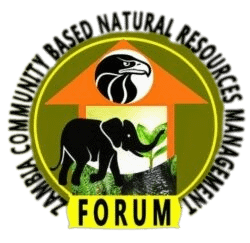THE ZAMBIA CBNRM FORUM PARTICIPATES IN THE STAKEHOLDERS ENGAGEMENT CARBON MARKET DIALOGUE
Enhancing collaboration to strengthen Zambia’s carbon market
Zambia faces urgent climate challenges, including severe floods and droughts, jeopardizing food security, exacerbated due to additional vulnerabilities like poverty and environmental degradation. To address these issues, Zambia requires substantial and diversified climate finance, such as bilateral agreements and domestic financing, for long-term resilience and community participation. In addition, carbon markets offer a promising avenue to attract investment, mitigate climate risks, and align with global climate goals.
By incentivizing emission reductions and promoting adaptation measures, carbon markets can drive tangible climate action while fostering community development and advancing progress towards the Sustainable Development Goals (SDGs). Zambia has made strides in creating an enabling political environment for its carbon market, with supportive policies and regulations. Also, efforts to develop Monitoring, Reporting, and Verification (MRV) systems and ensure alignment with international frameworks like the Paris Agreement demonstrate Zambia’s commitment to participating in the global carbon market.
Policy and market building efforts have attracted project developers and development agencies, signaling growing interest in Zambia’s carbon market despite this there is need to ensure that communities are recognized and have the rights to the benefits and this will also improve transparency, accountability to ensure high end to end integrity of carbon credits, through robust and well established governance structures such as Community Forest Managment Groups, Community Resources Boards etc and this will directly improve the Monitoring Reporting and Verification systems alignment with international standards, appropriate project implementation and equitable benefit sharing mechanisms required to participate effectively in the global carbon market, realise higher carbon prices and attract additional investment / climate finance to realize a sustainable carbon market in and for the country.
To address the key gaps and challenges in Carbon Markets there is need to address the following
- High levels of Reduction of Carbon Sinks through Deforestation which results in changes of land cover and fragmentation of the Ecosystem.
- Double Counting as a result of lack of integrity and transparency in Carbon markets
- Lack or Poor engagement of Communities as key custodians of Natural Resources as this would improve the improvement of governance and information sharing.
- Lack of Long-term Project sustainability as a result of over dependency of donor Aid .
- Poor or no awareness raising in the communities as this has been doubled by the lack of screening of carbon developers.
- Poor adherence to Policy and Regulations leading to un harmonized efforts by different key players and partners.
- Improve and ensure the Participation of socially marginalized groups these are women, youths and children.
